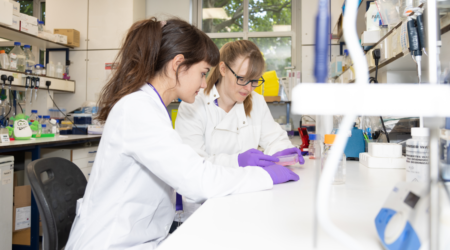Investigating peripheral innervation in maintaining tissue integrity at the cost of cancer risk
Review a project summary that will investigate how how nerves maintain tissue integrity at the cost of cancer risk.
The project
Due to pancreatic cancer’s aggressive nature and lack of specific symptoms the most promising change in the clinical figures requires better detection methods. To do so, we need deeper knowledge of cancer risk. Cancer is caused by changes in the DNA, mutations, of pancreatic cells. However, most of us have these mutations without the development of cancer. We know that the environment in which a mutation occurs largely determines if a cell progresses to cancer.
In this context, continuous inflammation is the best-known cancer risk factor inducing drastic changes to the normal cells, mainly the activation ‘regeneration potential’, a feature required for a mutated cell to grow.
Recently, it has been discovered that inflammation also increase cancer risk even after resolution. This phenomenon, referred to as ‘epithelial memory”, is the continuous maintenance, or memory, of the ‘regeneration potential’ after the pancreatitis is resolved. This memory protects the pancreas from secondary pancreatitis at the cost of increased pancreatic cancer risk.
Understanding the mechanisms that maintain ‘epithelial memory’ after pancreatitis could offer therapies to reduce cancer risk, as well as identify potential detection strategies. We will be looking into these changes and the impact that stress and pain plays in the process.
Dr Rute Ferreira from the Francis Crick Institute is applying for fellowships including a Pancreatic Cancer UK Career Foundation Fellowship to understand what changes occur to the pancreas after pancreatitis that predispose it to cancer and this could offer potential therapies to reduce cancer risk in at risk people.
Next steps
No scientific background or prior experience is needed to take part in this opportunity.
If you would like to give your feedback on this project, please contact the Research Team (research@pancreaticcancer.org.uk) quoting the involvement reference ‘Ferreira’. We will then email you the lay summary and specific questions Dr Rute Ferreira would like you to consider. Please return your responses to the research team by Tuesday 18th December 2024.

